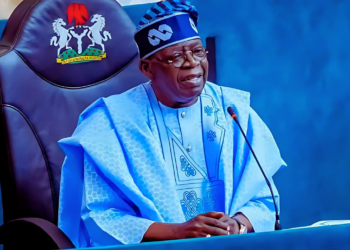In recent times, Nigeria has witnessed a remarkable surge in cryptocurrency adoption, particularly in Bitcoin and stablecoins. The volume of usage grew in Nigeria by 9% year-over-year to $56.7 billion between July 2022 and June 2023, Reuters have reported.
This newfound interest in digital assets is intricately tied to a complex web of economic factors, government policies, and the resourcefulness of its population.
The driving force behind Nigeria’s embrace of cryptocurrencies can be traced back to the drastic depreciation of its national currency, the naira. The summer of 2023 saw the naira’s value plummet, leaving many Nigerians grappling with diminished purchasing power and financial uncertainty.
In the face of such instability, a growing number of citizens sought alternatives to safeguard their wealth and investments. Cryptocurrencies, renowned for their ability to store value independently of fiat currencies, emerged as an appealing solution.
They provided a hedge against the depreciation that had become synonymous with traditional currencies, offering a lifeline for those looking to protect their financial well-being.
Economic Reforms and Uncertainty Aiding Crypto Popularity
The ambitious economic reforms spearheaded by President Bola Tinubu further fuelled Nigerians’ entry into the cryptocurrency market.
While these reforms aimed to address long-standing economic issues, such as costly petrol subsidies and exchange rate restrictions, they ushered in a period of economic uncertainty.
The immediate consequences of these reforms, including rising prices and economic volatility, left citizens seeking stability and asset protection.
Cryptocurrencies, with their potential for substantial returns and independence from conventional financial institutions, stood out as an attractive option.
They represented a means for Nigerians to navigate the challenging economic terrain and secure their financial futures.
Nigeria’s Regulatory Landscape for Cryptocurrencies
Nigeria’s cryptocurrency journey also intersected with its evolving regulatory landscape and the tech-savvy nature of its population. Initially, Nigeria imposed strict restrictions on banks and financial institutions, effectively barring them from cryptocurrency transactions in 2021.
However, the following year witnessed a shift as the country’s financial regulatory body introduced a set of regulations tailored to digital assets.
This change marked Nigeria’s attempt to strike a balance between banning crypto assets outright and allowing unregulated usage.
The government recognized the potential of blockchain technology and cryptocurrencies while striving to manage associated risks.
In this dynamic environment, Nigeria’s youthful and tech-savvy population wholeheartedly embraced cryptocurrencies. They harnessed peer-to-peer trading on crypto exchanges as a means to circumvent traditional financial institutions’ constraints.
Cryptocurrencies’ decentralized and borderless nature perfectly aligned with the aspirations of Nigerians seeking financial inclusion and autonomy.
This tech-savvy generation viewed cryptocurrencies as tools for financial empowerment and a pathway to economic resilience amid uncertainty.
Consequently, Nigeria’s crypto community continued to burgeon, propelled by the convergence of economic challenges, regulatory shifts, and the determination of its people.
Looking Ahead
As cryptocurrency adoption continues to rise in Nigeria, the future holds intriguing possibilities.
The convergence of economic turbulence and a growing awareness of digital assets suggests that cryptocurrencies will remain a prominent feature of Nigeria’s financial landscape.
The government’s efforts to regulate the industry indicate a desire to strike a balance between oversight and innovation, further legitimizing cryptocurrencies in the eyes of the public.
Moreover, Nigeria’s young and tech-savvy population is poised to play a pivotal role in shaping the nation’s crypto landscape. Their enthusiasm for digital assets, coupled with a deep understanding of blockchain technology, could position Nigeria as a significant player in the global crypto space.
The ongoing economic challenges and the need for financial resilience make cryptocurrencies an attractive option for Nigerians seeking to secure their financial futures.
In conclusion, the surge in cryptocurrency adoption in Nigeria is a multifaceted phenomenon driven by economic factors, government policies, and the adaptability of its people.
It is a trend that has the potential to reshape the nation’s financial landscape and empower its citizens to navigate an uncertain economic future.
For any enquiries please, email our editorial team at [email protected]. If you liked this story, kindly sign up for Clariform Newsletter, a handpicked selection of stories that helps you clarify things that matter and gives you clear signals about your world, delivered directly to your inbox.
Please subscribe to our YouTube channel, and join thousands of Clariform on Facebook, Twitter and Instagram.












